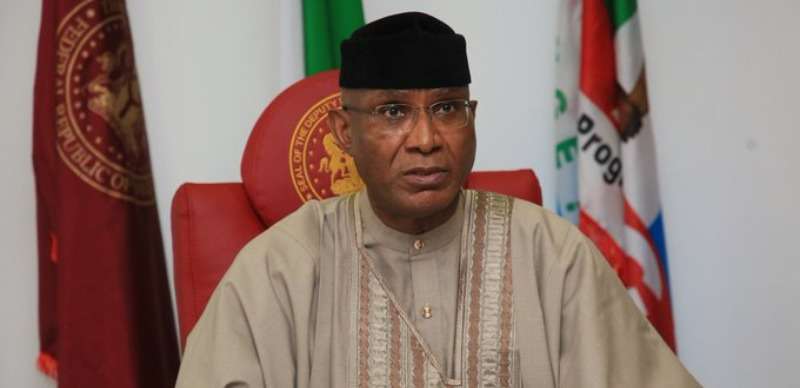The Edo 2024 gubernatorial election has come to a close with the Independent National Electoral Commission (INEC) officially declaring the All Progressives Congress (APC) as the winner. Senator Monday Okpebholo of the APC triumphed in a competitive race against the People’s Democratic Party (PDP) candidate, Dr. Asue Ighodalo, and the Labour Party (LP) candidate, Olumide Akpata. As the dust settles and the electoral tension begins to fade, the pressing question on the minds of Edo citizens is: What does this victory mean for the state and its people?
1. Continuity or Change in Governance?
Okpebholo’s victory marks a pivotal moment in Edo’s political trajectory. As the APC candidate, he has promised to continue the work laid by former Governor Adams Oshiomhole, whose administration emphasized infrastructure development, education, and healthcare. However, with a new mandate comes the expectation of fresh ideas and policies that reflect the evolving needs of the state.
For the people of Edo, the pressing issues include economic diversification, youth employment, and improved social services. The state’s economy, though historically reliant on agriculture, must adapt to modern challenges such as job creation in non-agricultural sectors, the digital economy, and investment in green energy. Okpebholo’s ability to address these key areas will determine whether his tenure ushers in a period of sustained growth or stagnation.
2. Bridging a Politically Divided State
While the APC’s victory is celebrated by its supporters, the election results reveal a state deeply divided along political lines. The PDP performed well in several key local government areas, and LP candidate Akpata, though finishing third, showed the increasing influence of a third-party voice in Edo’s political landscape. Okpebholo’s ability to unite the state, reaching across party lines to create a government that is inclusive and representative of all Edo citizens, will be crucial in building lasting peace and cooperation.
The governor-elect has called for unity, but actions must follow his words. If Okpebholo is to govern effectively, he will need to bring together political elites, traditional rulers, and civil society leaders to foster a spirit of inclusivity that transcends the bitter electioneering period.
3. Economic Revitalization: A Key Challenge
Edo State faces several economic challenges, ranging from high youth unemployment to underdeveloped infrastructure. Okpebholo’s administration will be tasked with revitalizing the state’s economy by leveraging its strategic location as a hub for commerce in Southern Nigeria. This could include initiatives to attract investment in industrial parks, improve the ease of doing business, and foster the growth of small and medium enterprises (SMEs).
Agriculture remains a backbone of Edo’s economy, and Okpebholo has pledged to support farmers through improved access to credit, mechanization, and better transportation networks. However, the long-term future of Edo depends on diversifying into sectors like technology, renewable energy, and tourism. His administration will need to work closely with federal agencies and international partners to harness Edo’s full economic potential.
4. Youth and Job Creation: A Priority
A significant portion of Edo’s population is young, and youth unemployment has been a persistent problem. Okpebholo’s campaign promised to prioritize youth job creation through vocational training, apprenticeship schemes, and partnerships with private companies. The governor-elect has emphasized the need to equip Edo’s youth with the skills they need to thrive in a competitive global economy.
Creating a conducive environment for entrepreneurs, startups, and tech-driven businesses could provide a pathway to success. A focus on education, both at the basic and tertiary levels, will also be essential to creating a workforce that can meet the demands of the modern economy. The promise of job creation and empowerment for Edo’s youth will be a litmus test for Okpebholo’s administration.
5. Infrastructure Development: A Long Road Ahead
Infrastructure development, particularly in terms of road networks, healthcare facilities, and education, has been a central issue for Edo citizens. During the campaign, Okpebholo pledged to continue infrastructural improvements started by his predecessors. Edo’s urban and rural areas alike need better transportation links, electricity, and access to clean water.
A significant challenge for the incoming administration will be ensuring that development reaches all corners of the state, especially rural areas that have historically lagged behind. Modernizing public services, improving healthcare delivery, and making education more accessible are key factors that can raise living standards and stimulate growth.
6. Managing Expectations and Governing Responsibly
With his victory, Okpebholo faces high expectations from both his supporters and those who may have opposed him during the election. The coming months will be critical in determining whether he can live up to his promises. Citizens are eager for tangible improvements in their day-to-day lives, and patience for unfulfilled promises is often short.
To govern responsibly, Okpebholo will need to implement policies that are not only popular but also practical and sustainable. This means balancing political interests with sound economic planning, maintaining transparency in governance, and ensuring that the benefits of his administration’s efforts are felt across all segments of society.
7. PDP and Labour Party’s Role Moving Forward
While the APC may be celebrating its victory, the opposition is not vanquished. Both the PDP and LP remain formidable forces in Edo politics, and their role in the coming years will be crucial in providing a robust opposition. Ighodalo, the PDP candidate, performed admirably and could be a future contender for leadership roles within the state or even nationally. Similarly, the LP’s Olumide Akpata, though finishing third, has shown that there is space for alternative political voices in Edo.
The opposition parties are likely to continue pushing for reforms and improvements, holding the APC accountable for its promises. A healthy democracy in Edo will depend on the engagement and activism of all political parties, ensuring that governance is people-focused and transparent.
Conclusion: The Road Ahead
Senator Monday Okpebholo’s victory is a turning point for Edo State, but it also signals the beginning of a challenging road ahead. His administration will be tasked with healing political divisions, revitalizing the economy, creating jobs, and ensuring that infrastructural development reaches every corner of the state. While his win has brought hope to many, it has also raised expectations that must now be met with concrete action.
As the people of Edo look toward the future, they will be closely watching the new governor to see whether his promises translate into meaningful change. For Okpebholo, this is an opportunity to etch his name in the history of Edo as a leader who truly delivered for his people. Whether he succeeds or falters will depend on his ability to unite the state, govern inclusively, and lead with vision and integrity. The eyes of Edo are now firmly on him.



